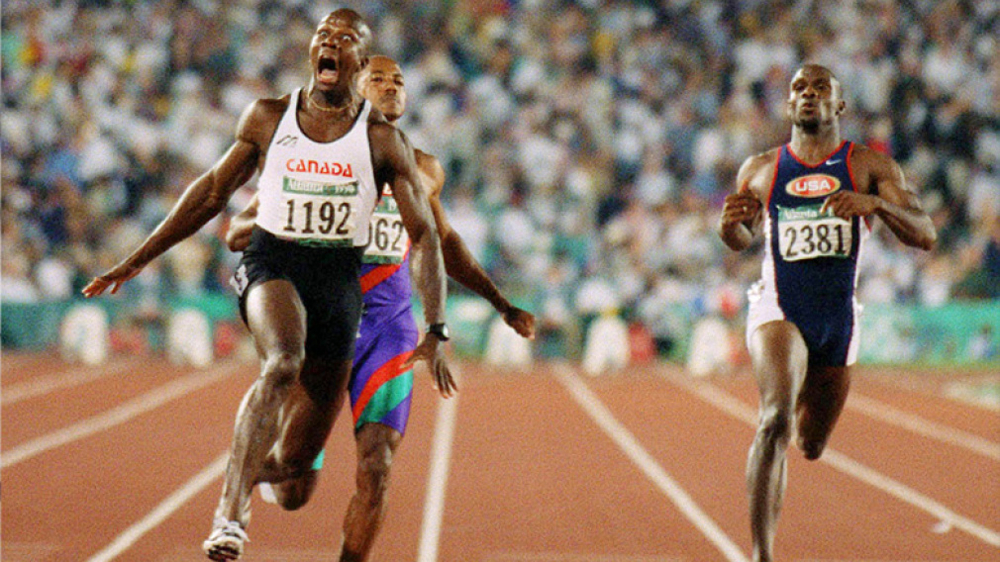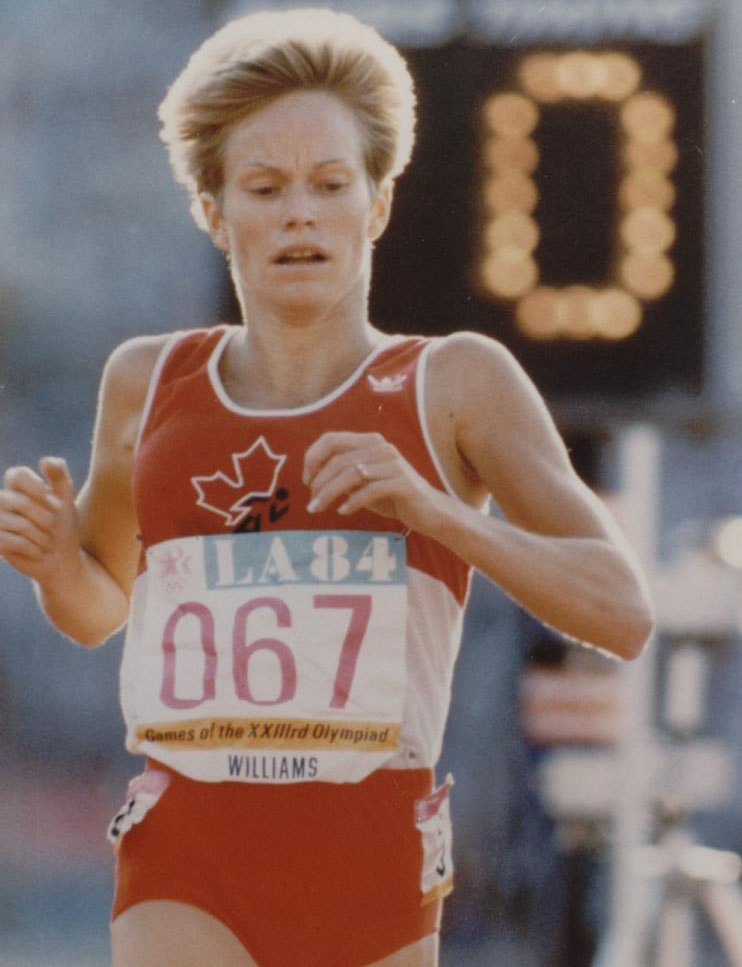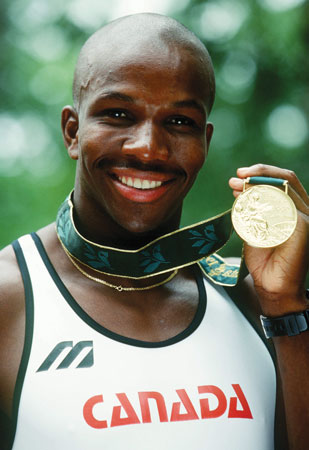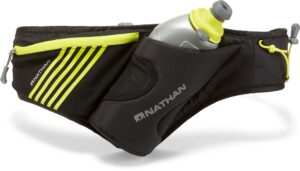A look back: Canada’s best Olympic performances
Canadian Running takes a trip down memory lane to celebrate some of our country's best athletes

With the track and field portion of the Olympics set to begin in just a few days, Canadian running fans are getting ready to cheer their favourite athletes on as they represent the red and white at the Tokyo Olympic Games. To help you get into the excitement, we’ve compiled a list of some (but certainly not all) of the best Olympic performances in Canadian history. How many of them do you remember?

RELATED: Here is your Team Canada for the 2021 Tokyo Olympic Games
George Orton: steeplechase, 400m hurdles
Orton was the first person ever to bring an Olympic medal home for Canada. He competed in the 1900 Paris Games, where he won gold in the 2,500m steeplechase in 7:34.40 and bronze in the 400m hurdles in 58.90. As if the breadth of his talent wasn’t impressive enough, he won those medals less than an hour apart.
Bobby Kerr: 100m, 200m
Kerr’s Olympic debut in 1904 produced only modest results, but he made his return to the Games in 1908 in London, England, where he tied in the 100m with South African Reggie Walker. Kerr was awarded the bronze and Walker was given silver. Kerr came back the following day to win the 200m by a hair in 22.6 seconds. The Hamilton, Ont. sprinter was celebrated as a national hero for his results.
RELATED: Of the 10 best 100m sprinters in history, only three have never had a doping charge
George Goulding: race walk
Goulding originally trained for the marathon, but when he realized how good he was at race walking, he entered the 3,500m race walk at the 1908 Olympics as well. He finished fourth at those Games, and 22nd in the marathon. Four years later, at the Stockholm 1912 Games, he returned to compete in the 10,000m race walk, and during that race he held such a blistering pace that three of the top 10 finalists dropped out. He won gold that year, and continued to set world race walking records.

Earl “Tommy” Thompson: 110m hurdles
Thompson was an easy favourite at the 1920 Games in Antwerp, Belgium, and he delivered. He won the gold medal in the 110m hurdles handily, setting a world record of 14.4 that would stand for the next 11 years.
Percy Williams: 100m, 200m
Williams was a dominant force at the 1928 Games in Amsterdam, tying the Olympic record set four years earlier in both the preliminary and semi-final rounds of the 100m, crossing the line both times in 10.6 seconds. In the final he false-started twice, but on the third try he led the entire race to win the gold in 10.8 seconds. Officials were so surprised by his victory that they didn’t have the Canadian flag or anthem ready, which delayed the medal ceremony. He later won the 200m as well, becoming only the third sprinter in history to achieve the Olympic sprint double.

The “Matchless Six”
The 1928 Games were the first to allow women to compete, and the Canadians came out in force. Six women made up the Canadian Olympic team, including Myrtle Cook, Ethel Smith, Bobbie Rosenfeld, Jane Bell, Jean Thompson and Ethel Catherwood. These women were so dominant, the Canadian press nicknamed them the “Matchless Six.” Rosenfeld and Smith took the silver and bronze in the 100m, the 4x100m team of Cook, Smith, Rosenfeld and Bell brought home the gold in the relay and Catherwood won gold in the high jump, putting Candian female athletes on the map.
Phil Edwards: 4x400m, 800m, 1,500m
Edwards was a five-time Olympic medalist. He won bronze as a part of the 4x400m relay team at his Olympic debut in 1928, and one three bronze medals in 1932 at the Los Angeles Games in the 800m, 1,500m and 4x400m. He went on to become a doctor, but came out of retirement in 1936 to help the Canadian Olympic team to win another bronze medal in the 800m.

Lynn Williams (Kanuka): 3,000m
Williams is worth mentioning because she won Canada’s first distance medal at the Olympics since Orton won the steeplechase in 1900. Williams made her Olympic debut at the 1984 Los Angeles Games, where she competed in the 3,000m, the first time the event was held at the Olympics for women. She won the bronze medal in what is now one of the most famous races in history, when American Mary Decker and Zola Budd (who was competing for Britain, though she later competed for her native South Africa) collided right in front of her.
Mark McKoy: 110m hurdles
McKoy competed at the Olympics four times. In his debut at the 1984 Los Angeles Games he finished fourth, missing the podium by 0.05 seconds. He returned in 1988 at the Seoul Olympics to finish a disappointing seventh. He was supposed to compete on the 4x100m relay team, but he immediately left Korea amidst the Ben Johnson doping scandal, and was suspended from competition. He returned in 1992 to the Barcelona Games, where he led the final from start to finish to win the gold medal in 13:12, Canada’s first gold on the track in 64 years. He was 30 at the time, making him the oldest winner in Olympic history. He later became an Austrian citizen and competed under their flag at the 1996 Olympics in Atlanta.

Donovan Bailey, 100m, 4x100m
You can’t make a list of Canada’s best Olympic athletes without including Donovan Bailey. He became one of our country’s most iconic sports figures when he won the Olympic gold at the 1996 Games in Atlanta, setting a world record of 9.84 in the 100m to become the world’s fastest man. One week later, he anchored the 4x100m relay team to another gold medal finish with his teammates Bruny Surin, Glenroy Gilbert, Robert Esmie and heat runner Carlton Chambers.
RELATED: Athletes will have to put their own medals on at the Tokyo Games
Andre De Grasse: 100m, 200m, 4x100m
Currently Canada’s fastest man, De Grasse became a household name after he became the first Canadian to win Olympic medals in all three sprint events at the 2016 Games in Rio. He won the bronze medal for the third-fastest time in Canadian history, then went on to win the silver in the 200m in a national record time of 19.80. Finally, he anchored the 4x100m relay team to a bronze-medal finish in a national record of 37.64.


